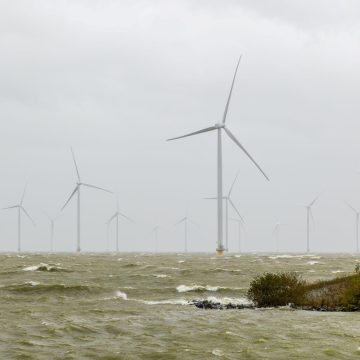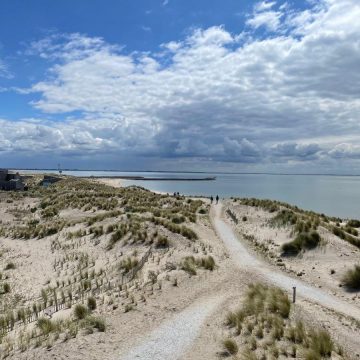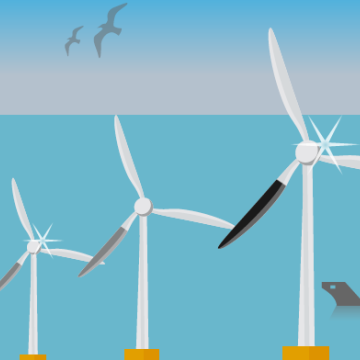Working together for biodiversity
How can Deltares help to preserve and restore biodiversity? Sacha de Rijk and Antonios Emmanouil are working on combining knowledge and on establishing a sound dialogue between ecologists and engineers. Both disciplines are needed to combat biodiversity loss.
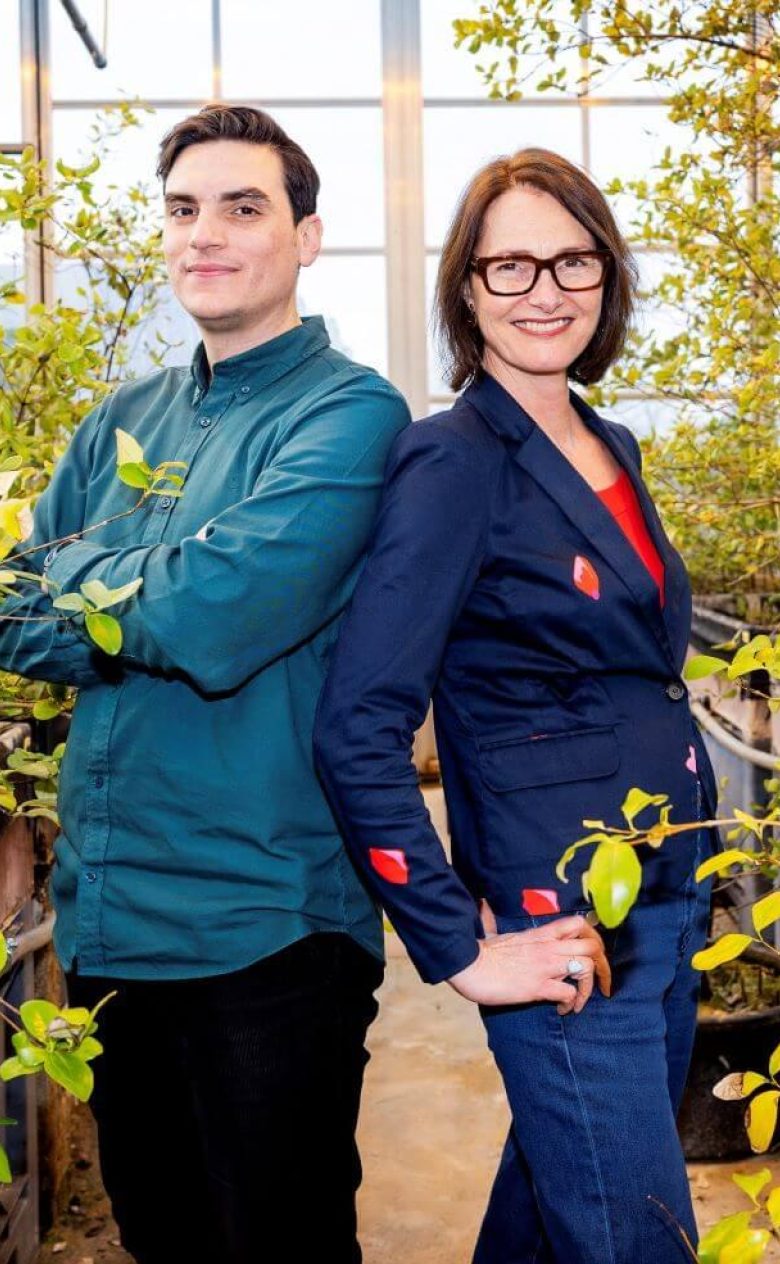
“Deltares is not an ecological consultancy but it does have all the knowledge needed to understand how human intervention or natural change affect organisms in water and soil. By offering solutions that preserve or restore biodiversity, we can help to reverse the downward trend,” says Sacha de Rijk, an expert in Freshwater Ecology and Water Quality at Deltares. As the Biodiversity team lead, she is working on combining expertise at Deltares for this field.
Under pressure

Sacha realised even when she was a child that biodiversity is under pressure worldwide. She is very concerned that the decline is accelerating. “The extent of biodiversity loss varies in different parts of the world and between species. Nevertheless, at 83 percent, freshwater species are suffering the most severe overall global decline according to the World Wildlife Fund. And that will get worse in a ‘business as usual’ scenario. Humans depend on biodiversity: it provides us with food and clean drinking water but it is also essential for things like the development of medicines.”
The various areas of expertise at Deltares have a lot of knowledge that can help to preserve and restore biodiversity. The Biodiversity team brings that knowledge together by extending the definition of biodiversity to include the living conditions of species. Sacha: “Factors such as water depth and water level dynamics, residence time, flow, morphology, salinity, temperature, pollution and groundwater levels all affect biodiversity. The basic knowledge at Deltares includes these ‘abiotic’ factors.”
“Whether we are looking at salinisation, drier conditions, pollution or the construction of offshore wind or solar farms: we can measure, analyse and model the impact on living conditions for organisms, now and in the future. When we integrate disciplines and then share that integrated perspective of the required response with our clients, government authorities, knowledge partners and private bodies, we contribute to healthy water and soil systems for people and nature.”
Project Marker Wadden
One of the projects the Biodiversity team is working on is the Marker Wadden Knowledge and Innovation Programme, which is studying ecosystem development on this artificial archipelago in the Markermeer lake. New locations for nature were established on the water and on land: in just a few years, 47 types of breeding bird and 170 plant species found their way here, making the Marker Wadden a successful international example of nature restoration.
Biodiversity framework
To ensure that the effects on biodiversity are included in all recommendations and solutions produced by Deltares, the Biodiversity team sends three questions to our colleagues: Does your project affect connections between habitats, disturb flora or fauna, or contaminate water or soil with chemicals or construction materials? In this way, with the help of an ecologist colleague, everyone at Deltares can make an initial assessment of the potential impact and then devise appropriate mitigation measures or alternatives that are better for biodiversity. “It’s a conversation starter: the dialogue between an engineer and an ecologist is a first step towards raising awareness.”
Intermediary between ecologists and engineers

Antonios Emmanouil works on that dialogue every day. Since joining Deltares, he has developed into a hydraulic engineering expert on nature-inclusive design in the energy transition, an intermediary between ecologists and engineers. Among other initiatives, he has worked on the Road2SID JIP, in which private bodies, NGOs, government authorities and knowledge institutes identified opportunities and challenges relating to multifunctional wind farms at sea, including biodiversity.
Antonios would like to bring ecology and engineering at Deltares together. “When ecologists and engineers understand each other’s language, which is entirely possible, they can combine their strengths and have a larger positive impact in our projects.”
"Offshore developments can have a major impact on biodiversity above and below the waterline,” explains Antonios. “Installing foundations can cause noise and vibrations, and lead to changes in the properties of the water and the structure of the seabed. Examples include the mixing of the water column and the effect of wind power production on waves. They can, in turn, lead to changes in the distribution of temperature, nutrients and light, and ultimately affect algae production. These effects can be felt throughout the North Sea ecosystem, particularly given the amount of offshore infrastructure and the space it occupies in the North Sea.”
At the same time, offshore wind farms are important for our energy transition. Antonios: “To produce offshore wind energy in a way that the North Sea ecosystem can manage, we need to limit the impact of these developments. And to design wind farms where possible so that opportunities are created to restore an ecosystem that has already been affected.” Antonios likes to be involved with questions like: How can we plan and design offshore energy hubs so that they are nature-inclusive? How can we use the design to minimise the potential ecological impact of offshore cables, platforms and foundations? And how can we ensure that the same infrastructure can function as well as possible as refuges, or hotspots where key reef species get a kick start?
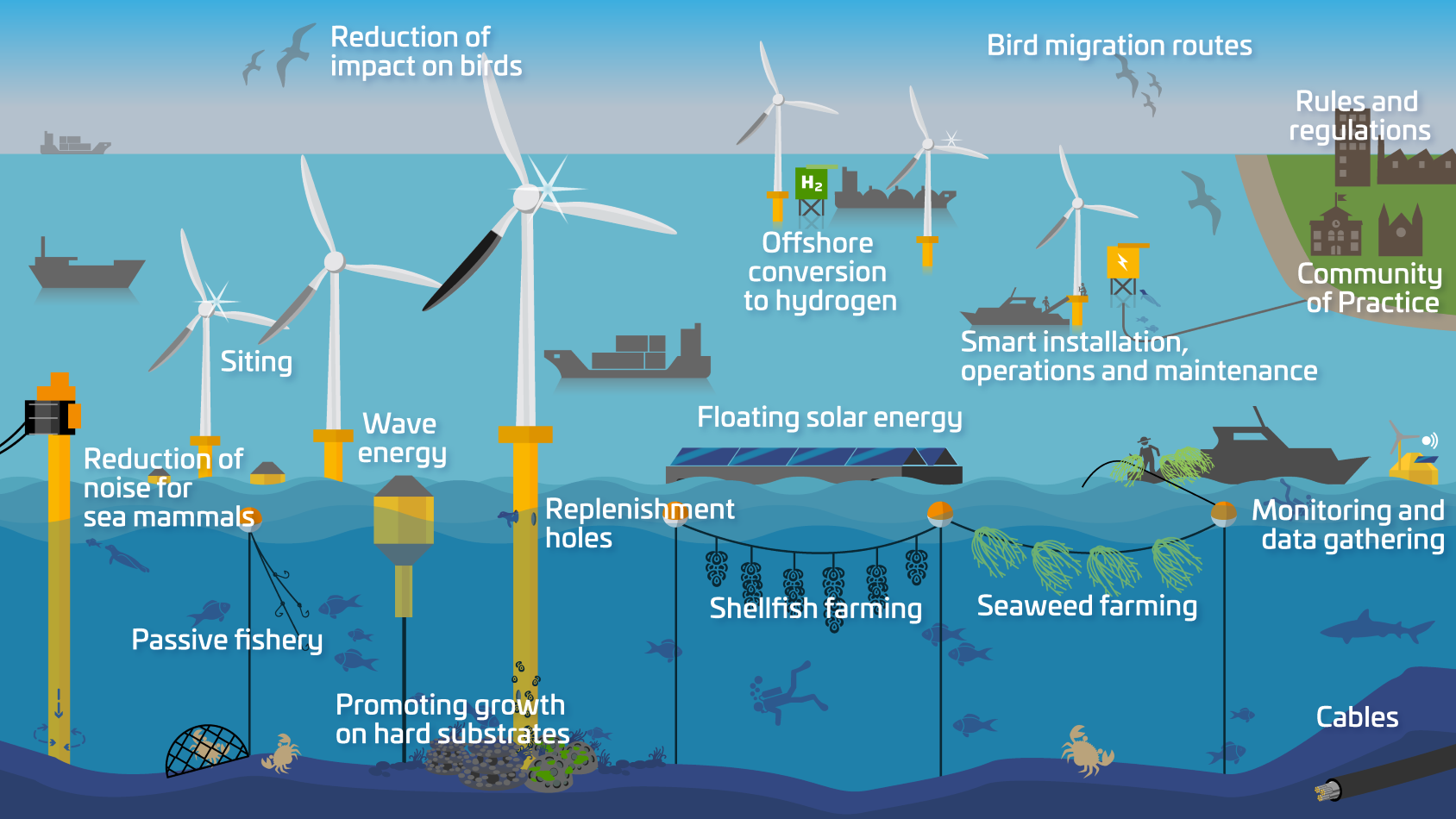
The Road2SID project
The Road2SID project demonstrated that there are numerous options and those are now being explored. “However, not all the measures are proven, and knowledge development about the effects cannot keep up with the roll-out of offshore power production,” Antonios points out. “Fortunately, there is now a stronger focus on the consequences of our industrialisation of the North Sea. And Deltares is playing an important role in remedying some of the most crucial knowledge gaps relating to those effects, both at the scale of single wind turbines and at the ecosystem scale.”
"Because nature lacks a business case and return on investment, ecosystem conservation is primarily a social responsibility", says Antonios. “It is up to us as knowledge institutes, working with a number of stakeholders and ultimately our governments, to implement the energy transition in a sustainable way on the basis of the knowledge we create together. And the first steps are being taken, with government authorities including ecological requirements in the latest tenders for offshore wind farms.”



